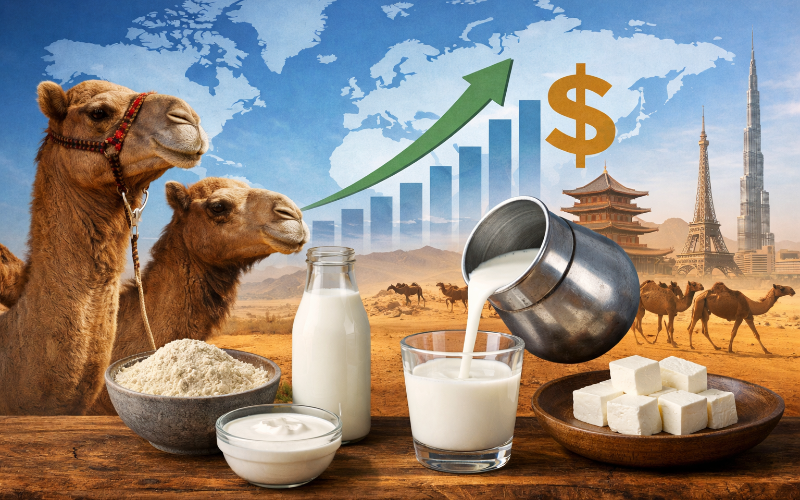Canada Advances Innovation in Agriculture with Methane Reduction Challenge Semi-Finalists
Source: The DairyNews
Canada's Minister of Agriculture and Agri-Food, Lawrence MacAulay, announced the selection of 13 semi-finalists in the Agricultural Methane Reduction Challenge on Monday. This initiative aims to develop scalable and economically viable solutions for reducing enteric methane emissions from cattle, showcasing Canada’s commitment to environmentally sustainable agriculture.

Launched in November 2023, the $12-million Challenge is a collaborative effort with Impact Canada. It adopts a staged approach to guide innovators through the development and deployment of their solutions across the cow-calf, dairy, and feedlot sectors. From an impressive pool of 86 submissions, including both national and international entries, the chosen semi-finalists propose a range of solutions from feed additives and animal management systems to pasture and grazing management techniques.
Each semi-finalist will now receive up to $153,846 to move into the prototype development stage, with the opportunity to secure additional funding of up to $230,000 over the next eight months. By Spring 2026, up to 10 finalists will be selected, each eligible to receive up to $500,000 to test the effectiveness of their solutions in reducing methane emissions. The challenge will culminate at the end of 2028, with two grand prizes of up to $1 million awarded to the top innovators.
Minister MacAulay expressed his enthusiasm for the initiative: "The Agricultural Methane Reduction Challenge is bringing together innovators from across the country who have new ideas about how to reduce agricultural methane emissions. I would like to congratulate all of the semi-finalists and wish them luck as they compete in the next phase of the Challenge."
Quick Facts:
Canada is a major player in the global cattle market, with over 11 million cattle and calves across 72,275 farms and ranches, making it one of the largest exporters of sustainable cattle.
In 2022, agriculture accounted for 27% of Canada's total methane emissions, predominantly from enteric fermentation in beef and dairy cattle.
Canadian cattle contribute to environmental preservation by maintaining about 1.5 billion tonnes of carbon in the soil and protecting over 60 endangered species in the grasslands.
The challenge aligns with broader government efforts under Canada's Methane Strategy, supporting the Global Methane Pledge and the 2030 Emissions Reduction Plan.
An independent jury of experts from diverse backgrounds will review and recommend winners at each challenge stage, ensuring transparency and credibility.
Each semi-finalist will now receive up to $153,846 to move into the prototype development stage, with the opportunity to secure additional funding of up to $230,000 over the next eight months. By Spring 2026, up to 10 finalists will be selected, each eligible to receive up to $500,000 to test the effectiveness of their solutions in reducing methane emissions. The challenge will culminate at the end of 2028, with two grand prizes of up to $1 million awarded to the top innovators.
Minister MacAulay expressed his enthusiasm for the initiative: "The Agricultural Methane Reduction Challenge is bringing together innovators from across the country who have new ideas about how to reduce agricultural methane emissions. I would like to congratulate all of the semi-finalists and wish them luck as they compete in the next phase of the Challenge."
Quick Facts:
Canada is a major player in the global cattle market, with over 11 million cattle and calves across 72,275 farms and ranches, making it one of the largest exporters of sustainable cattle.
In 2022, agriculture accounted for 27% of Canada's total methane emissions, predominantly from enteric fermentation in beef and dairy cattle.
Canadian cattle contribute to environmental preservation by maintaining about 1.5 billion tonnes of carbon in the soil and protecting over 60 endangered species in the grasslands.
The challenge aligns with broader government efforts under Canada's Methane Strategy, supporting the Global Methane Pledge and the 2030 Emissions Reduction Plan.
An independent jury of experts from diverse backgrounds will review and recommend winners at each challenge stage, ensuring transparency and credibility.
Key News of the Week










